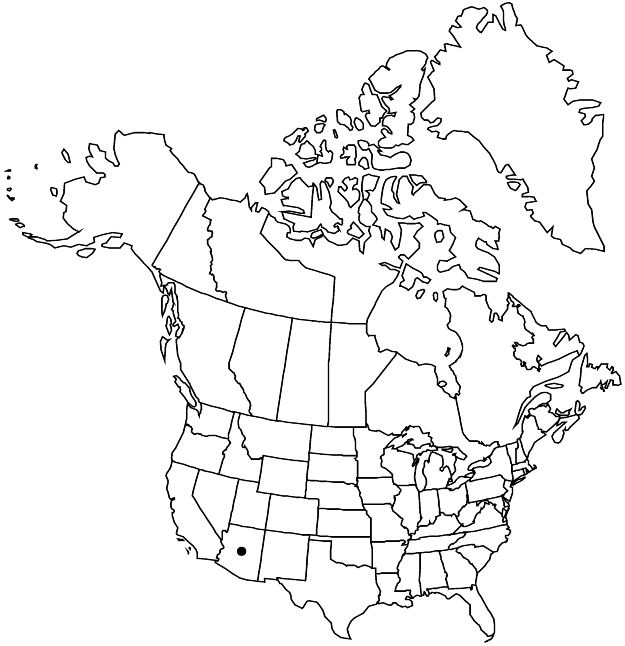Difference between revisions of "Euphorbia florida"
in W. H. Emory, Rep. U.S. Mex. Bound. 2(1): 189. 1859.
imported>Volume Importer |
imported>Volume Importer |
||
| Line 1: | Line 1: | ||
{{Treatment/ID | {{Treatment/ID | ||
|accepted_name=Euphorbia florida | |accepted_name=Euphorbia florida | ||
| − | |accepted_authority=Engelmann | + | |accepted_authority=Engelmann |
|publications={{Treatment/Publication | |publications={{Treatment/Publication | ||
| − | |title=Rep. U.S. Mex. Bound. | + | |title=in W. H. Emory, Rep. U.S. Mex. Bound. |
|place=2(1): 189. 1859 | |place=2(1): 189. 1859 | ||
|year=1859 | |year=1859 | ||
| Line 37: | Line 37: | ||
-->{{#Taxon: | -->{{#Taxon: | ||
name=Euphorbia florida | name=Euphorbia florida | ||
| − | |authority=Engelmann | + | |authority=Engelmann |
|rank=species | |rank=species | ||
|parent rank=section | |parent rank=section | ||
| Line 48: | Line 48: | ||
|distribution=Ariz.;Mexico (Sinaloa;Sonora). | |distribution=Ariz.;Mexico (Sinaloa;Sonora). | ||
|reference=None | |reference=None | ||
| − | |publication title=Rep. U.S. Mex. Bound. | + | |publication title=in W. H. Emory, Rep. U.S. Mex. Bound. |
|publication year=1859 | |publication year=1859 | ||
|special status= | |special status= | ||
| − | |source xml=https:// | + | |source xml=https://bitbucket.org/aafc-mbb/fna-data-curation/src/2e0870ddd59836b60bcf96646a41e87ea5a5943a/coarse_grained_fna_xml/V12/V12_657.xml |
|genus=Euphorbia | |genus=Euphorbia | ||
|section=Euphorbia sect. Anisophyllum | |section=Euphorbia sect. Anisophyllum | ||
Latest revision as of 20:16, 5 November 2020
Herbs, annual, with slender taproot. Stems erect, 15–60 cm, usually glabrous, rarely puberulent. Leaves opposite; stipules distinct, divided into 3–4 subulate-filiform divisions, 0.4–1.6 mm, usually glabrous, rarely puberulent; petiole 0.5–2.5 mm, glabrous; blade usually linear, rarely to narrowly elliptic, 10–40(–60) × 0.5–2.5 mm, base symmetric, attenuate, margins serrulate, often revolute, apex acute, surfaces usually glabrous, rarely puberulent; obscurely pinnately veined. Cyathia solitary at nodes or in small, cymose clusters at branch tips; peduncle 1.2–8.1 mm. Involucre obconic, 1.7–2.4 × 1.5–2.1 mm, glabrous; glands 4, greenish yellow to slightly pink, circular to oblong, 0.4–0.5 × 0.4–0.6 mm; appendages white to pink, obovoid, circular, flabellate, or oblong, 0.8–2.9 × 1–2.8 mm, distal margin entire. Staminate flowers 25–35. Pistillate flowers: ovary glabrous; styles 0.8–1.4 mm, 2-fid entire length. Capsules oblate, 2.2–2.5 × 2.7–3.1 mm, glabrous; columella 1.8–2.1 mm. Seeds light gray to light brown, ovoid, slightly 4-angled in cross section, 1.6–2 × 1.3–1.7 mm, with 2 or 3 well-developed transverse ridges.
Phenology: Flowering and fruiting summer–late fall.
Habitat: Sandy flats, gravelly washes, rocky hillsides, talus slopes, desert scrub, desert grasslands, mesquite woodlands, rarely oak woodlands.
Elevation: 600–1300 m.
Distribution

Ariz., Mexico (Sinaloa, Sonora).
Discussion
Euphorbia florida is known in the flora area from Coconino County south to the Mexican border
Selected References
None.